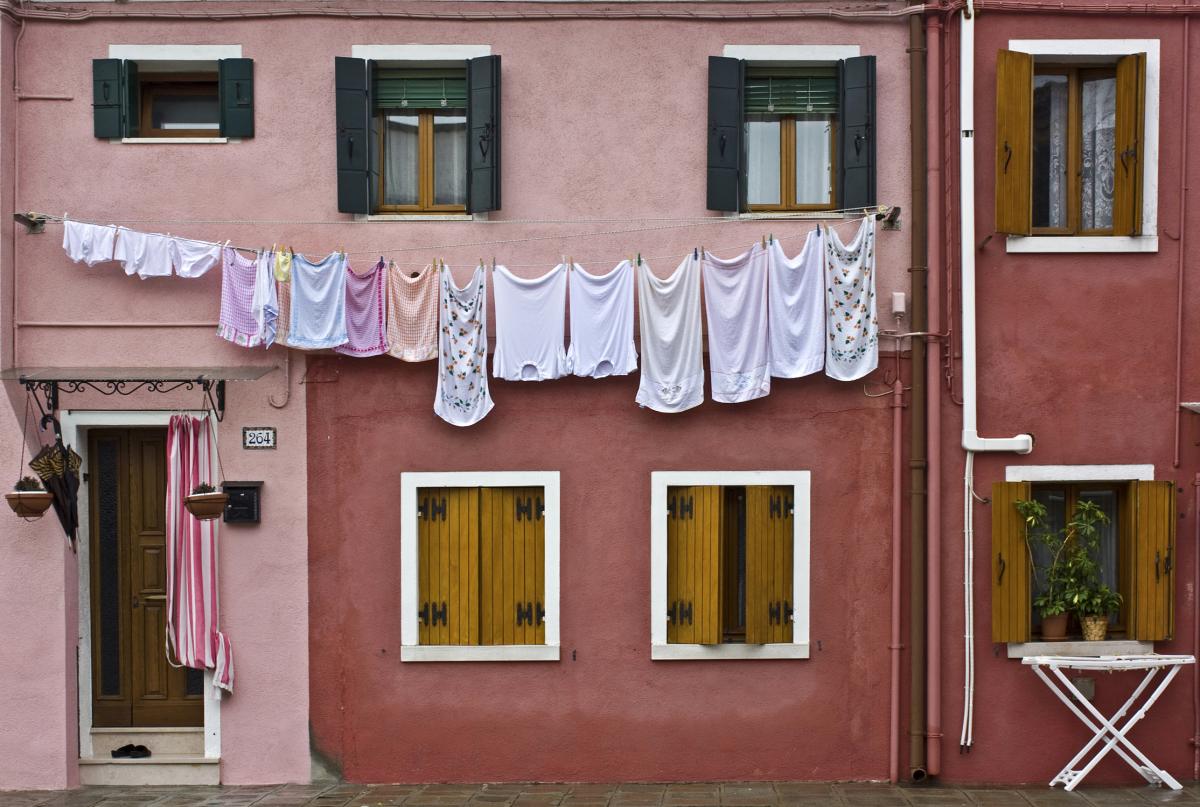




 25 February 2011
25 February 2011
 Caterina Pomini
Caterina Pomini
 12979
12979
An overview of Northern Italy
Impressive mountain landscapes, picturesque flatlands and beautiful lakes. What else? Northern Italy is also home to the Italian Riviera, the Venetian lagoon and first-class ski resorts like Cortina d'Ampezzo.
Don't miss Turin (a black heart, a white heart...), Genoa (Italy's largest port), Milan (one of the world's leading cities for fashion), Bologna (famous for its charming terracotta roofs and brick towers), Ferrara (the court of the House of Este), Mantua (a little known Renaissance treasure ringed by lakes), Verona (the city of Romeo and Juliet), Trento (with both Italian Renaissance and Germanic influences), Venice (one of the most romantic places on earth), Trieste (with its unique Central European flair).
An overview of Central Italy
From the soft rolling hills of Chianti to the remaining wonders of the Roman Empire, from the Umbria oak forests to the Renaissance town of Urbino, definitely out of time. Central Italy offers much to see and do.
Visit Florence (do we really need to introduce the Cradle of the Renaissance?), Siena (Florence's beautiful historic enemy...), Pisa (where the Leaning Tower stands), Lucca (still embraced by its 16th century walls), Pesaro (the hometown of Gioacchino Rossini), Perugia (Umbria's petite, enchanting capital), Assisi (where the spirit of St. Francis lives on), Orvieto (stunning at first sight...), Viterbo (Lazio's best preserved Medieval town), Rome (the Eternal City).
An overview of Southern Italy
Also known as Mezzogiorno (= “midday”), Southern Italy encompasses a lot of top tourist destinations, such as the Amalfi Coast, Pompeii, Parco Nazionale d'Abruzzo, Lazio e Molise and the Trulli of Alberobello.
Set out for L'Aquila (the lost treasure that every person of good sense is still weeping...), Naples (anarchic but full of culture), Trani (with its wonderful Cathedral and Jewish quarter), Lecce (“the Florence of the South”), Matera (world famous for its ancient town named “Sassi di Matera”), Cosenza (the gateway to La Sila's mountains), Catania (with its Baroque city centre and Greek-Roman ruins), Palermo (chaotic but unique), Cagliari (pastel buildings and limpid turquoise waters), Alghero (golden sea walls and Spanish atmosphere).
Different ways to get around Italy
The most comfortable way of travelling Italy is still by car, camper van or motorbike. If you don't like driving a car on your own, you can always opt for a chauffeur driven car service, though it is expensive. Anyway, here below, we give you some information about the most widely used modes of transport: trains, buses, ferries and planes.
Getting around Italy by train
Italian trains are generally good value, frequent but of mixed reliability. High-speed trains (Frecciarossa, Frecciargento, Frecciabianca, Italo) are efficient and very comfortable but also the most expensive; Intercity trains (Regionali veloci) are usually reliable, but if you are in a rush, it might be better to pay more money for the high-speed trains.
Regional trains (Regionali) are the slowest, cheapest and less reliable; however, they stop at all stations.
There are also some special tourist trains travelling on disused railway tracks that have been recently restored. These sometimes vintage trains give the opportunity to travel at a slower pace, visit places of particular interest and attend a wide range of traditional and cultural events.
An unconventional way to visit the Terre di Siena (Tuscany) is to get on board of the Treno Natura steam train travelling to Siena, Abbadia San Salvatore, Asciano, Buonconvento, Castiglion d'Orcia, Piancastagnaio, San Giovanni d'Asso, San Quirico d'Orcia, Sant'Angelo Scalo, Torrenieri, Vivo d'Orcia and other destinations. The Treno Natura project takes inspiration from similar European & North American projects and represents a great opportunity to discover fascinating towns, old abbeys and castles. Each train journey is always combined with a special event (celebrations, traditional fairs, markets, tastings and so on).
Getting around Italy by bus
It is no wonder that Italians never use long-distance intercity buses... Italian buses are hell! (in other words: unreliable, infrequent and slow!). However, since summer 2015, Megabus Europe has been operating daily bus service between Turin and Naples (calling at Milan, Bologna, Florence and Rome), Naples and Venice (calling at Rome, Florence and Padua), Milan and Rome (calling at Genoa and Pisa), Rome and Turin (calling at Siena, La Spezia and Genoa) and Venice and Turin (calling at Padua, Verona and Milan). Here you can check out the full list of routes.
Reaching the islands by ferry
Italy has two main islands: Sardinia and Sicily. If you want to reach Sardinia by ferry, you need to go to Savona, Genoa, Livorno, Piombino, Civitavecchia, Naples, Palermo or Trapani. If you want to visit Sicily, you can take the ferry from Genoa, Civitavecchia, Naples, Salerno and Villa San Giovanni. Sicily comprises many small, extraordinary islands: the Aeolian Islands, the Aegadian Islands, the Pelagie Islands and Ustica. All of these islands are reachable by hydrofoil and ferry from a number of Sicilian and Italian seaports. The Sardinian Islands – La Maddalena, Caprera and Saint Peter's Island – can be easily visited from Palau, Portoscuso and Calasetta.
Other ferry and hydrofoil companies connect Livorno, Piombino and Porto Santo Stefano to Gorgona, Capraia, Elba, Pianosa, Giglio and Giannutri, all included within the Tuscan Archipelago. The Pontine Islands, the Campanian Archipelago and the Isole Tremiti can be reached from Anzio, Terracina, Formia, Pozzuoli, Naples, Sorrento, Positano, Amalfi, Vieste, Rodi Garganico, Capoiale and Termoli.
Getting around Italy by airplane
Since the opening of the high-speed rail network in recent years, Italian domestic flights have starkly diminished. Let's say that if you travel from the very north to the south and vice versa or to and from the islands, flying within the country will help you save a lot of time. Italy's main airline is called Alitalia; other airlines for domestic flights include Meridiana, Air Dolomiti, Ryanair, easyJet, Vueling and Blu-Express.
THIS SECTION
IS UNDER CONSTRUCTION